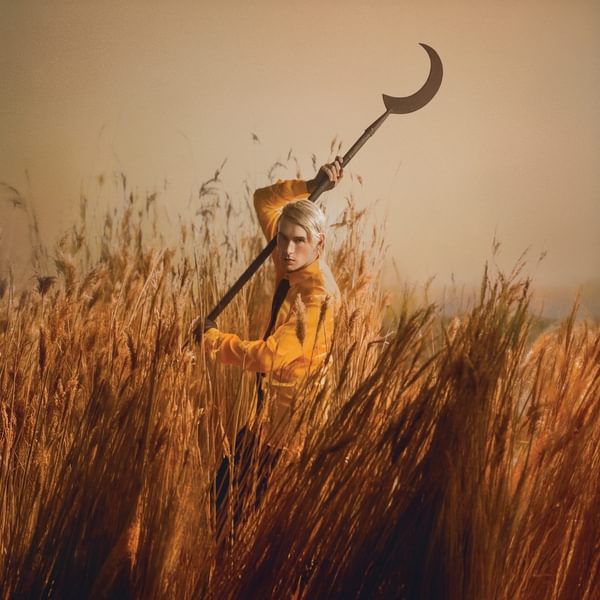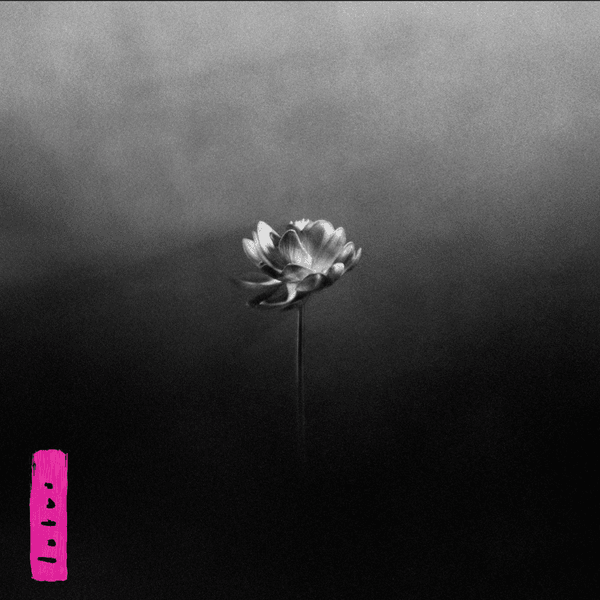
Tom Waits, disillusionment and shit: The Middle East
“Don’t quote that. That’s the worst thing I’ve ever said,” laughs Jordan Ireland. The Middle East frontman has just concluded an answer to one of The Line Of Best Fit’s questions with a remark of such beige blandness that his bandmate Rohin Jones is in stitches. Sitting in a sun-dappled beer garden in late spring, The Middle East are embarking on their final few interviews before the release of I Want That You Are Always Happy, their sort-of-but-not-quite debut album. The band themselves view their first release, The Recordings of The Middle East, “as an EP, so I guess this is the debut”.
Rohin and Jordan, whose wonderful intermingling voices provide some of the high points of I Want That You Are Always Happy, are part regretful, part sanguine, part relieved as we speak a month ahead of UK release day.
“It was such a bitch to record,” says Rohin, “and the process was so hard, just because we tried to do everything ourselves and we’re novices at it. By the time it rolled around for release date I was trying to distance myself from it. I’m happy for people to take it or leave it. I’m really not too fazed.”
“It’s kind of a non-event for us. I didn’t know when it was being released,” says Ireland. “I was in Thailand at the time and I got an e-mail saying that the album had been released and I was like ‘Oh yeah, sweet’. It’s been in the process for a year and maybe we’re just a bit used to it.”

Jordon Ireland
At a time where bands are so used to the press circuit that their answers feel prescribed, even premeditated towards reckless self-promotion, it’s refreshing to hear a band speak so candidly about their own work. Despite having made a tremendous record, the pair feel like they’ve not really achieved what they wanted to; their comments about I Want That You Are Always Happy seem to reflect a frustration with the product, but also a relief that this chapter of the band’s life has finally closed.
“We were meant to finish it a bunch of times,” says Jones, “but then we scrapped it and and then tried it again and scrapped that and tried it again and scrapped that, so we’ve really pieced it together over time. And maybe that’s just how we work and we haven’t come to terms with it yet, but it’s definitely not the best process for writing an album.”
“I’m kind of glad that it’s just a mediocre attempt. I’m happy for anyone to think what they want, whether they super-like it or don’t like it at all. For me, it’s just one of those things: you have to put a full stop on something and say ‘this is what I did for this time’ and document it for that period, but it’s just the start for me.”

Rohin Jones
Ireland agrees with this quite harsh assessment: “I don’t really feel like we’ve found our sound, as a lot of people like to put it, or like we’ve created any kind of masterpiece. The thing that pisses me off most with these songs is that they’re so easy to pigeonhole, and you kind of feel like you get put in this box, and that’s what the public thinks you’re going to write for the rest of your life. And it kind of spurs you on a bit.”
This constant forward-thinking is one of the recurrent themes in our conversation. When not criticising their own work or giving frank appraisals of the state of the industry – the phrases “absolute shithole” and “big pile of fucking shit” are bandied about – they seem to kindle a lot of hope for the future of The Middle East.
“I think, in personal terms, I feel like we do have the kinds of things to make masterpieces,” Ireland states. “I feel like we’ve got a lot better to do.”
The “pigeonhole” that Ireland refers to seems to also be a particular sticking point. I Want That You Are Always Happy is a hard record to classify. Mixing a multitude of genres and styles, the band still feel that it’s too easy to label their music, the entire concept of which they find an affront: “I think talking about any music in those terms is frustrating,” Jones tells us. “What’s the point of listening to something that’s creative if you’re going to reduce it to something that’s not creative at all, or really bland? It just does not make any sense to me at all.”

Just as the pair find stylistic labels reductive, they share a love of experimentation, and are loathe to discuss the “radio culture” they feel is restricting musical growth at large.
“This is an art that we’ve created and refined, and all of a sudden we’re stunting ourselves by feeding ourselves this shit,” Ireland reflects. “I just feel like we should be continuing to make it better and better, and no matter what the genre is, it should be interesting and it should be pushing boundaries. With this album I don’t really feel like we nailed it, we’re definitely falling into a lot of categories that’ve been done before and I don’t feel like it’s anything completely original or anything like that, but that’s kind of the goal that we’re heading towards. I just like encouraging ourselves within the band and other people, to work towards that point of being original and pushing music to new places, because there’s a lot more places that it could go. That was a bit of a rant, wasn’t it?”
“Yeah it was,” says Jones. “Official rant. Last interview he didn’t say one word, now he’s on fire!”.
So if the majority of what we’re hearing is, to use The Middle East’s word, “shit”, then who inspired them to make something different? Echoes of country, blues, folk, rock and punk reverberate throughout the record, and the touchstones the pair mention – Silver Jews, Bob Dylan, Tom Waits – offer an insight into the musical diversity that makes their album so spectacular and challenging. Yet Jones and Ireland still feel the occasional pang of creative limitation too, just like the rest of us.
“I remember listening to Silver Jews albums and having that thought: ‘I could never have thought of that,’ ” Jones reveals. “It’s an amazingly crushing thought but at the same time it’s beautiful. It’s like being undone by someone else, and it’s a beautiful and vulnerable thing.”
“Tom Waits sums it up for me,” he adds. “For me the personification of an unbelievable run of beautiful creativity is Tom Waits.” Waits’ gleeful experimentation, mixed with his constant pursuit of originality, serves as an inspiration. In many ways, I Want That You Are Always Happy benefits from a not dissimilar approach.

Indeed, it’s Waits’ name which prompts a hugely in-depth conversation about the nature of art itself, names like Matsuo Basho and Sparklehorse mixed together in highly nuanced analyses of what it means to create art. The Middle East like to joke about themselves, but they are extraordinarily erudite interviewees.
“I think there must be loads of people that make art in their own small ways, like some sort of musician that writes such bizarre music that no-one will ever understand it,” says Ireland. “And that’s their gift to humanity even though humanity doesn’t want it.”
“Are you saying that the reluctant art is the best?” rebuttles Jones. “What if someone like Tom Waits, what if he never got discovered? Does it diminish or enhance his artistry?”
These are deep, penetrating questions – the kind, frankly, an interviewer dreams of having answered but can seldom think up – which the bandmates discuss at length, and with an impressive facility. The Middle East are unique in more than just musical terms.
However, in their own eyes, they are still very much a work in progress. Their debut album, wonderful and inventive as it sounded to us, is not up to scratch to them, and the possibility of improving on what’s already a brilliant sound drives them on. But are there any longstanding goals the band are trying to achieve?
“At the end of the day it’s the artistic endeavour that keeps us going,” says Ireland, “creating good things, and not so much being able to smoke clove cigarettes and live in a mansion somewhere in east London. No offence to anyone who smokes clove cigarettes and lives in east London.”
“I guess I have a lot of goals that are somewhat associated with The Middle East,” concludes Jones. “It’s somewhat of a career, so I want to get married and I want to have kids and I want to start a family. I guess you could call that a goal, to try and get to a place where I can be creative constantly but also support a family off that.
“It’s probably not feasible, but I’ll give it a good shot until I die.”
Here’s hoping it’s a dream that does not go unfulfilled.
I Want That You Are Always Happy is out now via Play It Again Sam.
Get the Best Fit take on the week in music direct to your inbox every Friday

Patrick Wolf
Crying The Neck







